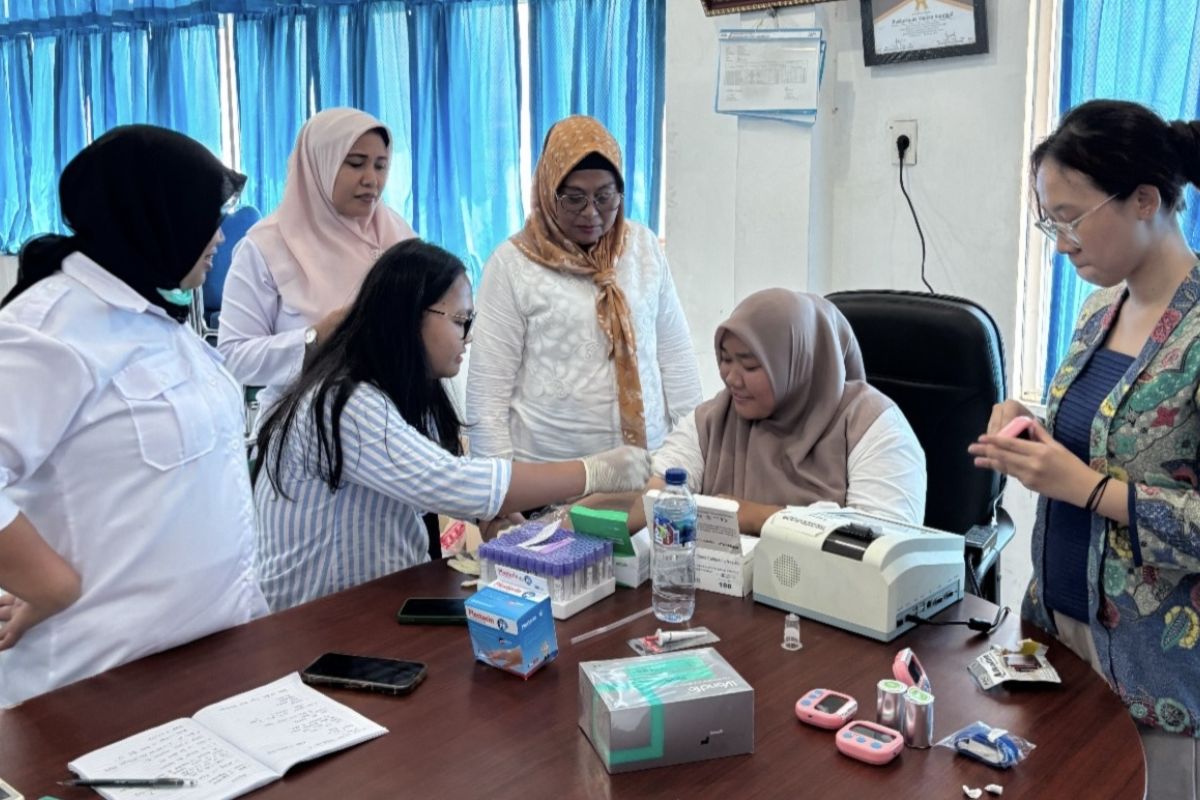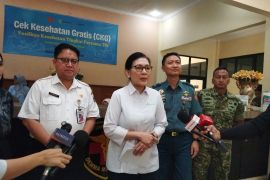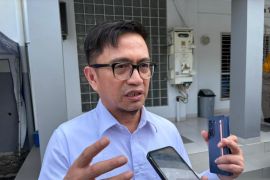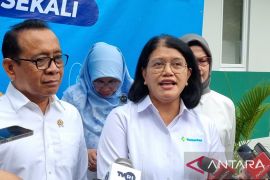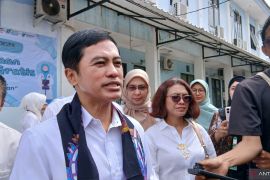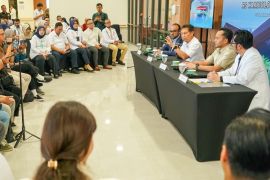Deputy Health Minister, Dante Saksono Harbuwono, noted in a statement on Monday that thyroid disorders often go undiagnosed until they lead to serious complications.
"Early detection is a crucial step to prevent severe impacts. Cross-sector collaboration is important to expand services at the primary level," he explained.
He affirmed that this program aims to conduct 80 thousand Thyroid Stimulating Hormone (TSH) examinations at several health centers, as part of efforts to prevent non-communicable diseases.
Harbuwono noted that thyroid disorders, especially hypothyroidism, remain largely hidden health issues.
He noted that in the Asia-Pacific region, the prevalence among adults is about 11 percent, which is higher than the global rate of around 2-4 percent.
Harbuwono stated that TSH examinations will be concentrated in Deli Serdang, Jakarta, Malang, Makassar, Medan, Cirebon, and Surabaya.
In addition to offering examinations, this program will provide diagnostic equipment, disposable medical supplies, and training for health workers, in partnership with PT Merck Tbk (Merck).
Head of the Metabolic Disorder, Cardiovascular and Aging Cluster at the University of Indonesia's Faculty of Medicine IMERI, Dr. Dicky L. Tahapary, Sp.PD-KEMD, Ph.D., stated that the screening data will be used to establish a national registry of thyroid patients.
"With evidence-based data, we can formulate more targeted policies and support structured disease prevention," Tahapary remarked.
Meanwhile, President Director of PT Merck Tbk, Evie Yulin, expressed her side's belief that a simple thyroid test in the Early Detection of Thyroid Disorders Program could help millions of undiagnosed patients.
This initiative aligns with the Merck Thyroid Manifesto, a call for large-scale thyroid screening to diagnose more than 50 million people with hypothyroidism by 2030.
This step also involves the patient community, including Pita Tosca, an organization of thyroid patients in Indonesia. Astriani Dwi Aryaningtyas, founder and chair of Pita Tosca, emphasized the importance of equal access to diagnosis and treatment.
"Thyroid disorders are often not physically visible, but they can impact the quality of life. We hope this screening will realize a more inclusive service," she stated.
As part of a long-term approach, the results of this program will be summarized in the Thyroid Registry report, planned for publication in an international journal this year. The report will support advocacy for Indonesian thyroid health in global forums such as the World Health Assembly.
Related news: Ministry adding lab facilities for screening congenital hypothyroidism
Related news: Early detection helps prevent NCDs' risks from worsening: Ministry
Related news: Some 30.6 million Indonesians screened for non-communicable diseases
Translator: Ida Nurcahyani, Resinta Sulistiyandari
Editor: Azis Kurmala
Copyright © ANTARA 2025
